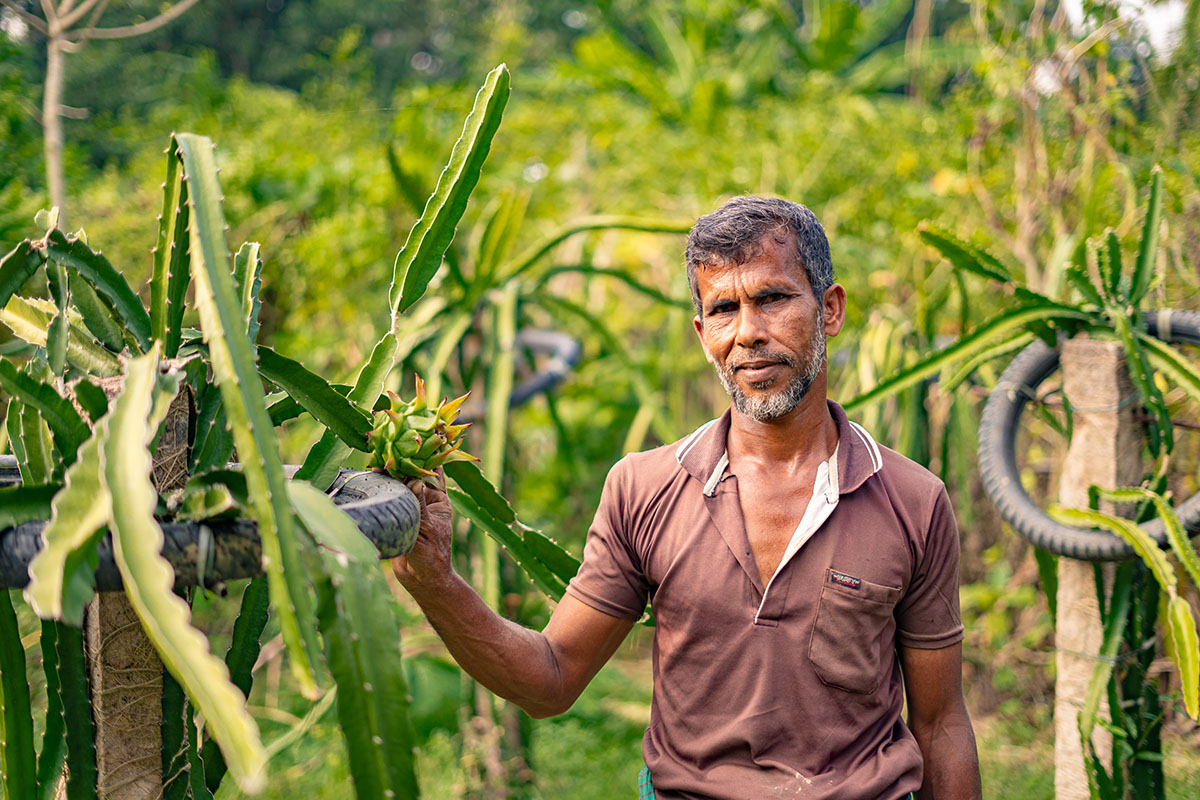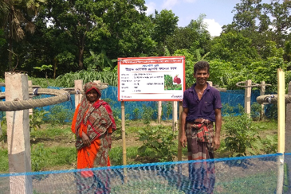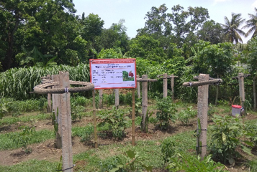
Md. Mosharaf Hossain, a 35-year-old resident of Uthali village in Islamkathi union of Tala Upazila, Satkhira District, owns 33 decimals of cultivable land. However, due to high production costs and low yields, he was not making a profit from his agricultural land and was struggling with poverty along with his four family members. He had no prior knowledge of climate-smart cash crops.
In May 2021, Md. Mosharaf Hossain came to know about the ASIA-Livelihood Project and decided to join their program. With the help of the program, he learned about climate-adaptive indigenous varieties of vegetable cultivation that are ideal for his agro-ecology. He was also educated about using organic fertilizer instead of chemical fertilizer in vegetable production, which led to an improvement in his production and product quality. Furthermore, he learned about following a crop calendar to produce indigenous vegetables and now cultivates a variety of vegetables on his land.
 After careful consideration, Md. Mosharaf Hossain decided to cultivate dragon fruit on 3 decimals of land next to his house with the assistance of the ASIA-Livelihood project officials. He is very optimistic about the potential of a dragon fruit garden on a small plot of land. In addition, he has started mixed vegetable cultivation in the same land where he is growing dragon fruit, and hopes to generate a monthly income of 2500 tk from the vegetables produced.
After careful consideration, Md. Mosharaf Hossain decided to cultivate dragon fruit on 3 decimals of land next to his house with the assistance of the ASIA-Livelihood project officials. He is very optimistic about the potential of a dragon fruit garden on a small plot of land. In addition, he has started mixed vegetable cultivation in the same land where he is growing dragon fruit, and hopes to generate a monthly income of 2500 tk from the vegetables produced.
Md. Mosharaf Hossain has transformed into an advanced farmer and an influential communicator. He now cultivates a greater variety of vegetables and fruits, setting an example for fellow farmers. He also mentors others struggling with farming, offering advice on smart crop cultivation techniques.
Given Bangladesh’s high climate vulnerability, it’s crucial to explore ways to enhance agricultural growth in the region. Mosharaf Hossain highlights the importance of identifying methods to improve agricultural practices.
growth in the region. Mosharaf Hossain highlights the importance of identifying methods to improve agricultural practices.
Mosharaf Hossain acknowledges the project’s role in enhancing his awareness of climate-adaptive cultivation. He appreciates the technical knowledge gained in cultivating indigenous vegetable varieties while adhering to a crop calendar, which has significantly boosted safe agricultural production. He aspires to become a role model for the next generation in this area.

